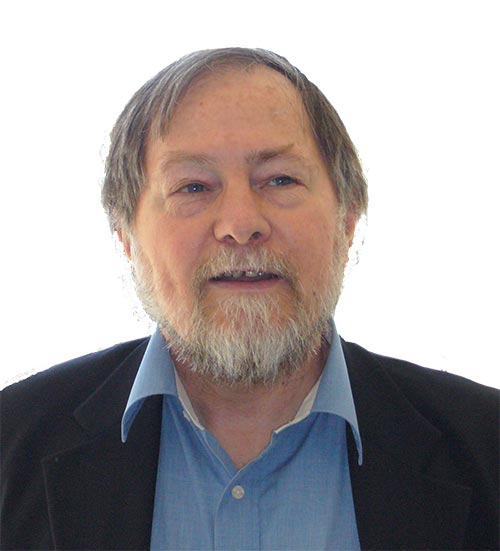Meet the Writing Academically team
 Bill Wrigley is the Founder and Director of the Writing Academically team and is passionate about helping students and researchers become more successful in their academic writing.
Bill Wrigley is the Founder and Director of the Writing Academically team and is passionate about helping students and researchers become more successful in their academic writing.
He has a wealth of extensive experience studying and working in higher education for over 30 years involving lecturing, mentoring, tutoring, or research at various university faculties, including the University of Queensland, Griffith University, Queensland University of Technology, the University of Melbourne, Maastricht University and University of Groningen in the Netherlands, and Qassim University in Saudi Arabia. He has worked in several disciplines, including psychology, medicine, the health sciences, law, and music education.
Bill holds three degrees all involving theses, including a Bachelor of Arts (Hons), a Master of Arts in Clinical Psychology, and a PhD in Education/Psychology. He has published several journal articles and a book chapter. He was born in Australia and is a native English writer and speaker.
He has taught, trained and consulted with teachers, researchers and students in various academic activities, including academic writing and research skills, teaching skills, student assessment, and curriculum review and development.
Bill has extensive experience working with local and international students and staff at academic institutions to help them achieve improved success in the academic writing.
He offers various services:
- expert editing of academic essays, theses, reports, literature reviews, thesis proposals, journal articles, book chapters, submissions, presentations, resumes & cover letters.
- personal, friendly tutoring or coaching in how to improve your:
- literature search skills
- critical analyses
- literature review
- use of academic English
- sentence and paragraph construction
- IELTS essays (Task 1 and 2 Academic or General)
- Special Tertiary Admissions Test (STAT) essays
- use of SPSS and referencing software, such as Endnote
- resume and cover letter
- presentation
Qualifications
Doctor of Philosophy, Faculty of Education, Griffith University, 2006.
Master of Arts in Clinical Psychology, University of Melbourne, 1981.
Master of Arts, Preliminary, in Psychology, University of Melbourne, 1978.
Bachelor of Arts, University of Melbourne, 1975.
Teaching English as a Foreign Language (TEFL), International TEFL Teacher Training, (awarded Grade A, Certificate No. ITTT00176491), 2010.
Publications/Conference Papers
Wrigley, W. J. & Emmerson, S. B. (2013). Ecological development and validation of a music performance rating scale for five instrument families. Psychology of Music, 41(1), 97-118.
Wrigley W. J., & Emmerson, S. B. (2013). The experience of the flow state in live music performance. Psychology of Music, 41(3), 292-305.
Wrigley, W. J., van der Vleuten, C., Freeman, A., & Muijtjens, A. (2012). A systematic framework for the progress test: Strengths, constraints and issues: AMEE Guide no. 71. Medical Teacher, 34, 683-697.
Govaets, M., & Wrigley, W. J. (2012). Workplace Assessments: The Mini CEX. Lecture presented at the Saudi
Arabia Assessment Conference, Qassim University.
Wrigley, W. J., & Schutte, B. (2012). The Principles and Practices of the Progress Test. Lecture presented at the Saudi Arabia Assessment Conference, Qassim University.
Wrigley, W. J. (2007). Implementing standards-based assessment in medical education. Paper presented at the Association for Medical Education in Europe (AMEE), Trondheim, Norway conference.
Wrigley, W. J. (2006). Improving music performance assessment. Unpublished Dissertation, Griffith University, Brisbane.
Jackson, S. A., & Wrigley, W. J. (2004). Optimal experience in sport: Current issues and future directions. In T. Morris & J. Summers (Eds.), Sport psychology: Theory, applications and issues (pp. 423-451). Milton, Queensland: Wiley.
Wrigley, W., & Emmerson, S. (2002). Staff and Students’ Attitudes to the Performance Assessment Process at the Queensland Conservatorium Griffith University: Results and Recommendations. Unpublished manuscript, Griffith University, Brisbane.
Wrigley, W., Emmerson, S., & Thomas, P. (2002). Improving the educational utility and accountability of assessment in music performance. Paper presented at the Royal College of Music, London conference “Understanding Music Performance”.
Please email Dr Bill Wrigley for further information
Also on the Writing Academically team
 Dr Peter Grimbeek is a member of the Writing Academically team. He has worked for 15 years as an academic, convening and teaching courses and workshops in quantitative and qualitative research methods and research design, and demonstrating the use of statistical software. He has provided methodological and statistical advice to staff and students at Queensland University of Technology, Griffith University, the University of New England, and the University of Tasmania.
Dr Peter Grimbeek is a member of the Writing Academically team. He has worked for 15 years as an academic, convening and teaching courses and workshops in quantitative and qualitative research methods and research design, and demonstrating the use of statistical software. He has provided methodological and statistical advice to staff and students at Queensland University of Technology, Griffith University, the University of New England, and the University of Tasmania.
He offers a wide-ranging data analysing and reporting service that includes:
- Survey design and construction
- Survey analysis and reporting of outcomes
- Text analysis of open-ended questions, interviews, focus groups and larger documents.
The software used includes:
- SPSS (non-parametric and parametric analysis)
- AMOS (confirmatory factor analysis and structural equation modelling)
- WinSteps (Rasch item analysis)
- Leximancer (automated text analysis)
He has a particular interest in designing, developing, and analysing surveys. Other statistical interests include the use of SPSS Optimal Scaling to develop demographic profiles, AMOS to do structural equation modelling, Winsteps to do Rasch item analysis, and Leximancer to do automated text analysis.
He has worked as a private consultant since the mid-1990s for a variety of individuals and institutions, including Australian Council of Deans of Education, Indigenous Researchers’ Network (Griffith University), Partnering Works, Townsville GP network, BoysTown, Sharjah Department of Civil Aviation, Bahrain Labour Fund, Queensland Alliance for Mental Health, TechWrite Inc. USA, Queensland Education, AHURI, QuickSmart CRC, and Guides Australia.
He has also worked as a consultant at the Eidos Institute since about 2007 on EIDOS Institute projects in Australia and the Middle East, and also for 12 months as chief advisor tender and panel submissions at EIDOS, identifying tender opportunities, writing tender proposals, and helping to shape its corporate thinking and vision.
He continues to apply these methodological skills and interests across a range of content areas (e.g., education, health, labour markets, public policy).
You can email Dr Peter Grimbeek directly.